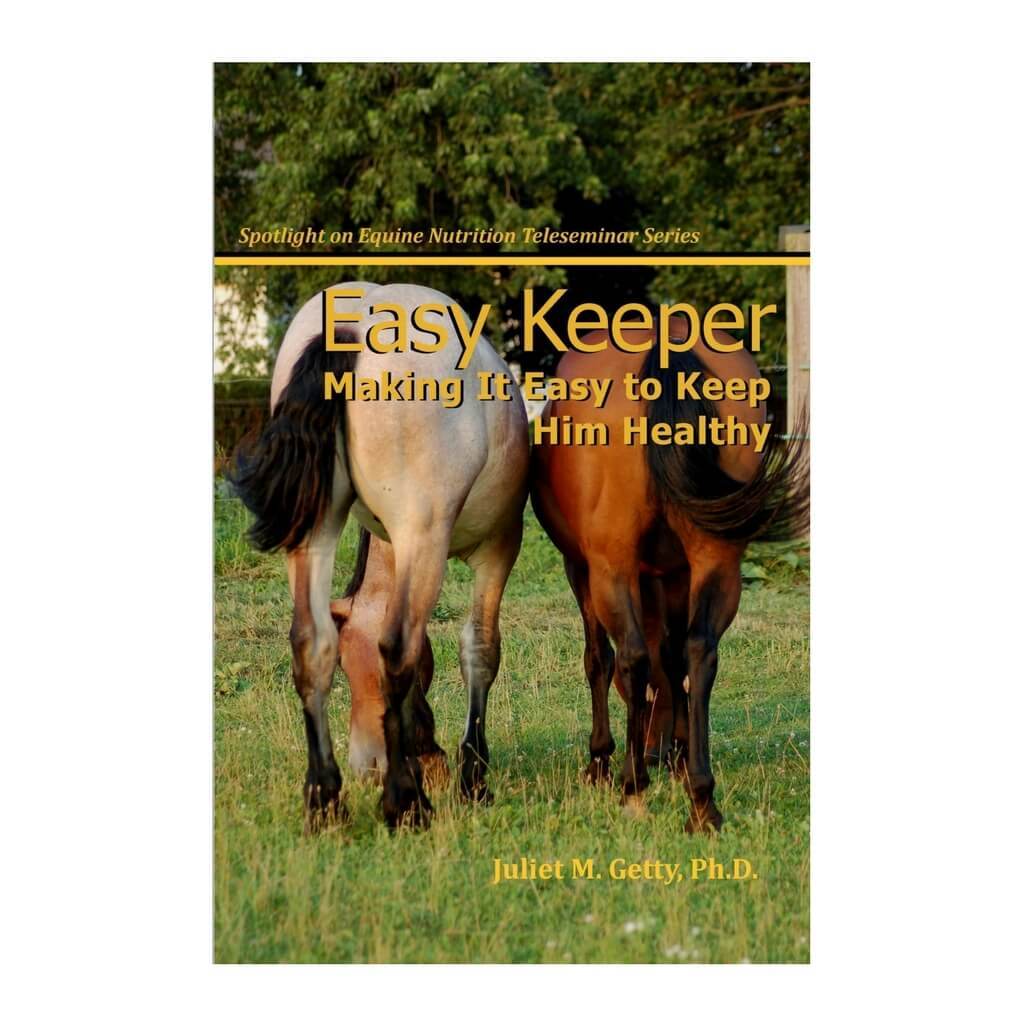-
Equine obesity is a difficult yet highly common issue all over the world. This issue looks at the causes, prevention, and solutions to this problem. Research of equine obesity started with studies on human obesity, looking at elements like hormonal responses and the effect of exercise. Then the research moved to horses, and lo and behold, found that the drivers of weight issues for people are, for the most part, the same as for horses. The Easy Keeper offer four keys to successful equine weight management that not only work, but bring benefits far beyond reducing the horse's girth.
Highlights:
- Insulin and leptin resistance
- Body fat and inflammation
- Pasture grazing
- Foods to avoid
- The Four Keys: Losing weight the right way
About Dr. Juliet M. Getty
Juliet M. Getty, Ph.D. is an independent equine nutritionist with a wide U.S. and international following. Her research-based approach optimizes equine health by aligning physiology and instincts with correct feeding and nutrition practices. Dr. Getty’s goal is to empower the horseperson with the knowledge to provide the best nutrition for his or her horse’s needs.
Dr. Getty is the author of the comprehensive resource, Feed Your Horse Like a Horse, as well as seven topic-centered Spotlight on Equine Nutrition series of booklets:
- Whole Foods & Alternative Feeds
- Joint Health - A Nutritional Perspective
- Aging Horse - Help Your Horse Grow Old with Dignity and in Health
- Laminitis - A Scientific and Realistic Approach
- Easy Keeper - Making it Easy to Keep Him Healthy
- Equine Cushing's Disease - Nutritional Management
- Equine Digestion - It's Decidedly Different
Save on Book Packages!
- Save $2 when you buy any 2 Spotlight Titles (mix & match)
- Save $12 when you buy all 7 Spotlight Titles
- Save $28 when you buy all 7 Spotlight Titles + Feed Your Horse Like A Horse
She also offers an informative e-newsletter, Forage for Thought. Opt-In here. Her Resource Library offers a world of useful information for the horseperson, including a library of her past articles, tips and recordings. Her Free-Shipping Store helps horse owners choose the right supplement for their horse’s specific needs.
-
Excerpt from Easy Keeper: Making it Easy to Keep Him Healthy
Reduce Inflammation
As we’ve seen, reducing inflammation is a critical component of weight management. The most basic thing to grasp is that antioxidants reduce inflammation. (See Appendix B.) Antioxidants include such things as vitamin E, vitamin C, and beta carotene (which is found in plants and which horses use to make vitamin A). These vitamins are not found in hay. They are found in fresh healthy grass, but once the grass is cut and dried and stored to make hay, the hay is dead, and it starts to lose those antioxidants which are destroyed by oxygen during and after the curing (drying) process. Therefore a hay diet needs to be supplemented with antioxidants. There are a number of commercial supplements that include those antioxidant ingredients.
Omega-3 fatty acids also reduce inflammation and ground flaxseeds are among the best sources of omega-3s; other supplements include it as well.
Supplements such as magnesium, chromium, and psyllium are also very helpful. For magnesium, I suggest offering 5000 mg/250 pounds of body weight, and for chromium between 1-2 mg/250 pounds of body weight.
As for psyllium, this is a relatively new kid on the block. A very interesting study was published recently demonstrating how psyllium lowers circulating glucose, which lowers circulating insulin. We usually think of using psyllium husks in terms of sand colic, with psyllium provided seven days out of the month as a preventive. In cases of insulin resistance, it’s best to give your horse about a third of a cup of psyllium per meal, which, for my international readers, is approximately 70 ml per meal, and that’s every day. (By “meal” I mean a feeding that is in addition to the normal hay and/or pasture you’re providing.)
Foods to Avoid
Avoid foods with more omega-6 fatty acids than omega-3s because omega-6s actually increase inflammation; oils that are high in omega-6s are soybean, vegetable, corn, and hemp seed oil. And avoid iron; too much iron increases insulin resistance. Many supplements contain iron, yet forage is typically quite high in it, so the horse is already getting enough. Avoid sweet feeds, too. In fact, avoid feeding anything that contains cereal grains like oats or corn or barley; these are starchy feeds, and starch and sugars (molasses is a classic example) become digested down to glucose and when glucose gets into the bloodstream, it causes insulin to rise–and now you know the rest of the process: When insulin goes up, body fat goes up as well.


